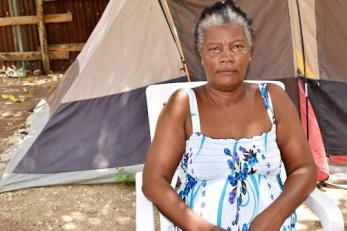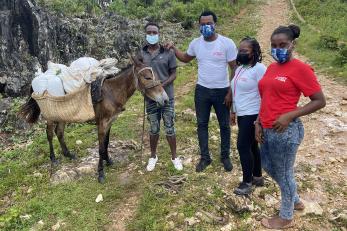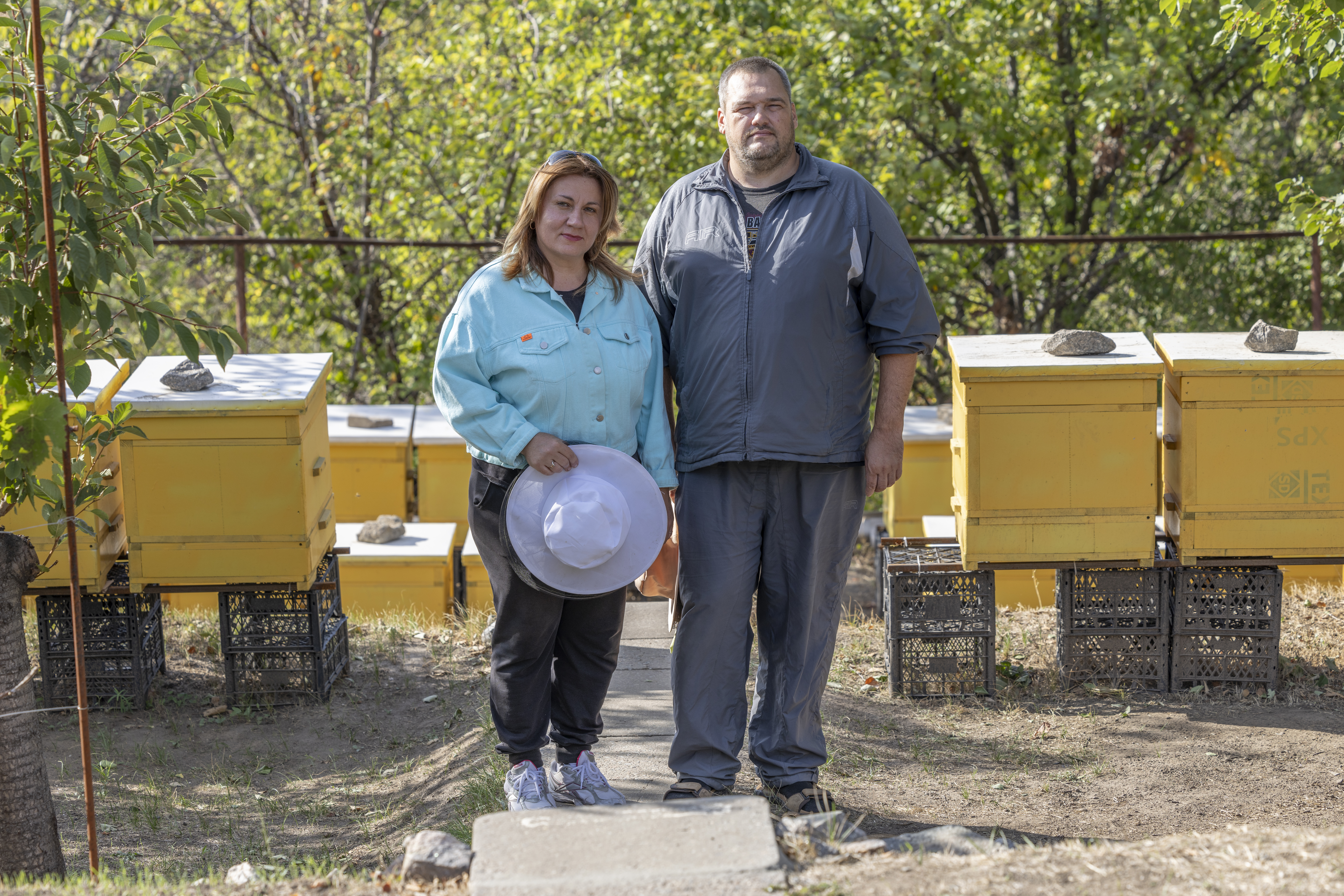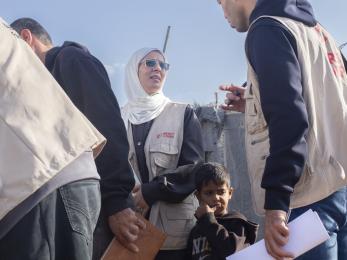Haiti in recovery

On August 14, 2021, the rugged green land of southern Haiti shook violently. A magnitude 7.2 earthquake struck the coastal mountainous area between the Nippes Department and Sud Department. Just two days later, Tropical Storm Grace caused widespread flooding and landslides, blocking major highways and delaying emergency efforts. Through all of this, Mercy Corps responded immediately to help some of the 800,000 people who needed humanitarian assistance in the hardest-hit areas of Nippes, Sud, and Grand Anse.
Our teams in Port-au-Prince and Nippes delivered essential supplies to more than 13,700 people near the epicenter of the earthquake. We shared important information and provided cash assistance so families could quickly buy what they needed most. It was the first urgent step toward helping families rebuild their lives after the disaster that injured over 12,000 people with reports of more than 2,000 deaths, and damaged 140,000 buildings. A year later, Mercy Corps Haiti continues to provide support for long-term recovery by providing access to clean water, livelihood support, and cash assistance.
In Nippes and Pascal, we’re repairing damaged reservoirs connected to two water systems that will provide clean water to 800 households. As part of the livelihoods support program, 600 small businesses like restaurants, stores, and salons have received cash transfers to help bolster the local economy.
With the challenging context of political and general insecurity, Mercy Corps is using mobile money to deliver cash. This method is preferred since it’s accessible to people who can’t reach a physical site and delivery isn’t hindered by challenges like road blockages. It’s a safer option during times of instability. Mercy Corps has distributed cash assistance to more than 3,000 households, giving families the flexibility to spend on what they need most urgently.

“The situation was very difficult for me from a socio-economic point of view and got worse after the earthquake,” said Raphaëlle Elna, who had relocated with her children from Port-au-Prince to L’Asile long before the earthquake occurred. As part of long-term recovery efforts, Raphaëlle received cash assistance, which she used to pay her children’s school fees and to reopen her small business selling a popular milk drink. Raphaëlle believes it is essential to support rural communities, where families like her own are hoping to build a better life than what they had before the earthquake.
Raphaëlle had moved away from the capital city due to the instability in Port-au-Prince, which has only worsened since the earthquake. Lunise Jules, Country Director of Mercy Corps Haiti, said, “It is becoming increasingly challenging to safely move people and supplies in or out of Port-au-Prince as the gangs are getting bolder and control nearly every route.”
According to organizations monitoring the escalating violence in Port-au-Prince, there are more than 90 gangs in the city. Many young people had moved to the capital to search for jobs after the earthquake. Once there, they were unable to find jobs but needed to send money home to support their families, pushing them to join gangs. The increasing violence, political instability, and now the war in Ukraine, has exacerbated lack of access to affordable food supplies. According to the World Food Program, 4.5 million Haitians are experiencing food insecurity, and 1.3 million are at risk of severe hunger.

Mercy Corps livelihood assistance for farmers helps address food insecurity by delivering cash assistance to 42 farmer associations—reaching 2,436 farmer families—providing agricultural supplies and tools. Mercy Corps has been working with rural farmers in Haiti for years. We have distributed drought-resistant seeds and offered trainings on how to mitigate catastrophic erosion and boost harvests. Though it was the earth that shuddered and shook a year ago, we’re now relying on the land to recover.



